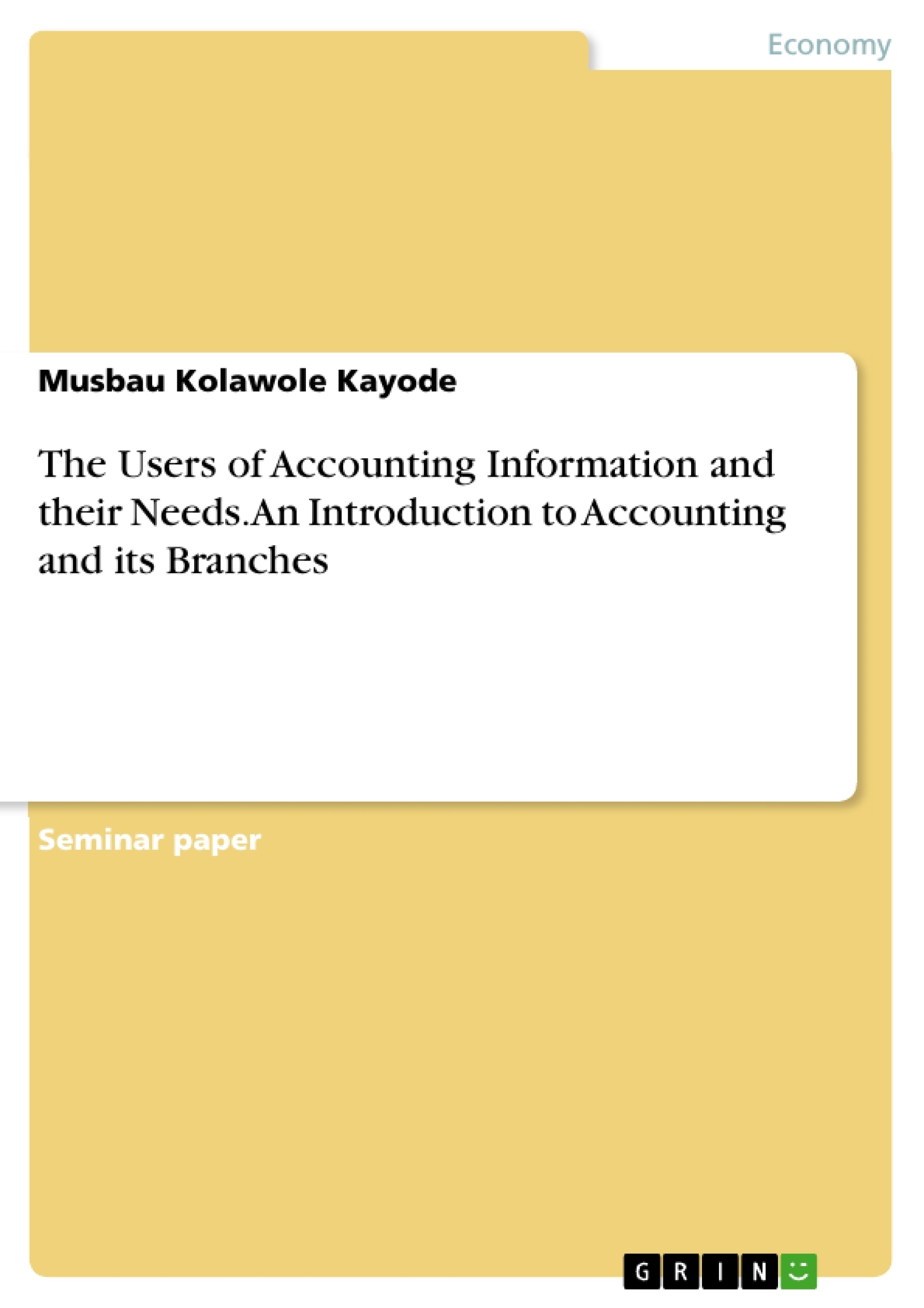The objective of this paper is to justify the existence of the accounting function as a significant and integral requirement of each organization and institution as well as its purpose in the current society we live in today. This entails the analysis of the users of accounting information, the various branches of accounting and the relevance of this information to various stakeholders in the society that surround and support organizations and institutions.
Accounting, in itself is a fundamental part of the information systems of organizations today. This is because there are various parties in the society that need this information apart from the managers and owners of the organizations and institutions.
Furthermore, accounting is now regarded as a service function of organizations and the society in general. This is because as an informative function of organizations, it enables various users to make relevant and valid decisions of an economic and financial viewpoint.
Table of Contents
- Introduction
- Users of Accounting Information and their Needs
- Owners
- Customers
- Suppliers
- Managers
- The Lenders
- The Government and its agencies
- The Financial Analyst and Advisors.
- The Employees
- The Public.
- Branches of Accounting and Their Relevance to Organizations
- Financial Accounting
- Management Accounting and Cost Accounting
- Accounting and Social Practice
- Accounting and Corporate Governance
- Positive Impacts of Corporate Governance
- Negative Impacts of Corporate Governance with regard to Disclosure
- Accounting Information Systems
Objectives and Key Themes
The objective of this paper is to establish the importance of accounting as an integral part of any organization and institution, highlighting its vital role in today's society. The paper analyzes the diverse users of accounting information, their specific needs, and how accounting information serves as a cornerstone for decision-making in various contexts.
- The role of accounting information in decision-making for various stakeholders.
- The different categories of users of accounting information, including internal and external users.
- The diverse needs and objectives of different stakeholders, including owners, customers, suppliers, and lenders.
- The impact of accounting information on corporate governance and social practice.
- The relationship between accounting information systems and organizational efficiency.
Chapter Summaries
The introduction provides an overview of the evolution of accounting and its contemporary significance. The chapter highlights the crucial role of accounting information in facilitating decision-making for a wide range of users, from internal stakeholders to external entities. The focus then shifts to exploring the diverse needs of different stakeholder groups, such as owners, customers, suppliers, managers, lenders, and the government. Each of these user categories has specific information requirements that are crucial for their respective decision-making processes.
The paper further examines the branches of accounting, including financial accounting, management accounting, and cost accounting, emphasizing their relevance to different organizational aspects. The chapter also explores the impact of accounting on social practice and corporate governance, discussing both the positive and negative implications of corporate governance on disclosure practices.
Keywords
The main keywords and focus topics of this text include accounting information, stakeholders, decision-making, internal and external users, financial accounting, management accounting, cost accounting, social practice, corporate governance, disclosure, and accounting information systems.
- Quote paper
- Musbau Kolawole Kayode (Author), 2015, The Users of Accounting Information and their Needs. An Introduction to Accounting and its Branches, Munich, GRIN Verlag, https://www.grin.com/document/306839




